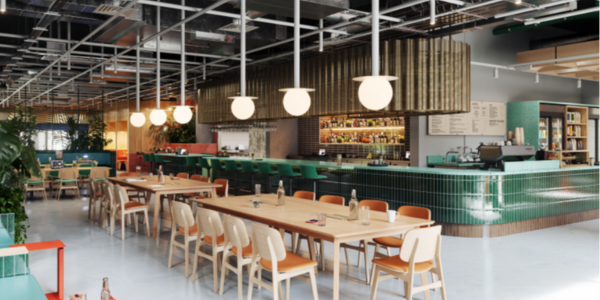
Written by Megan Strahle, The Bulb
Events offer an incredible opportunity to benefit the local community in which they are held with long-lasting environmental, social, and economic impact. Incorporating a positive socio-economic event legacy also has the power to enhance the events themselves by creating a greater sense of purpose for attendees, as well as fostering a deeper connection to the host destination. Megan Strahle, Sustainability Consultant at The Bulb, shares her strategies for meaningful events that leave lasting legacies.
Every little helps
From a 20-person sit-down dinner to a 30,000-person trade show, each event presents unique opportunities to benefit the local community where they are held. The key is to be as intentional as possible as early in the planning process as possible, and remember that smaller businesses will require more lead time to source and produce materials and resources.
A good place to start would be sourcing a venue that runs on renewable energy and has strong sustainability practices in place. For example, when clients have run events in London, organisers have used venues such as ExCeL London, 15 Hatfields and Friends House. ExCeL London for example, benefits its local community through a range of different socio-economic activities, including being a Living Wage Employer, supporting five local charity partners and actively encouraging clients and organisers to engage with the local community to support their event legacy.
Local links
We regularly engage with social enterprises in an event’s host destination. For set up and derig, Connection Crew, which provide teams of talented people who have faced barriers to work such as homelessness, to solve production challenges across a range of sectors including events, TV and film. Connection Crew recommends biscuits from Half the Story, which creates supportive job roles in its bakery for those who have experienced homelessness. We recommend calling on Change Please Coffee for beverages, where 100% of profits help people experiencing homelessness through its Barista Training Programme. For tea, we suggest going to Nemi – which provides employment to refugees, giving them local work experience and job readiness skills to enter the UK workforce and integrate into broader society.
Local social enterprises in your event’s host destination may be small, and they may not all be B Corp, but they do amazing work directly benefiting the local community and can be found everywhere. You don’t need a dedicated sustainability manager to find them, either. Simply talking to your network and industry connections will usually do the trick, or failing that, a quick Google search for ‘social enterprises’ in your location, and you can usually find one that aligns with your organisation’s values. In our experience, social enterprises will also happily link you with other like-minded organisations who can help you achieve your goals.
Virtuous circle
I was lucky enough to play a small part in the sustainability strategy for the Birmingham Commonwealth Games Opening and Closing Ceremonies 2022, where the team worked tirelessly to ensure that every asset had a home post-ceremony and put plans in place to ensure that materials were prepped for donation. The organisers of the Games even repurposed the iconic metal bull – a distinctive mascot of the Games, it now lives at Birmingham train station where it animates every hour to entertain passing commuters.
For a large-scale event like the Games, it took a year to gather all the charities and line up the assets with the local community, but this can all be done on a much smaller scale. A 20-person dinner can also leave a legacy, if you plan it in advance and make use of the services of social enterprises and the local community. Someone will always know someone who could benefit from unused food and drink, materials from the event, or local employment opportunities.
To do this yourself, consider working with an organisation such as Event Cycle, who take leftover materials and donate them to charities, community groups, schools and social enterprises in the region. The local sharing app Olio is another great resource.
Invisible impact
It can be hard to measure the tangible effects on local communities as a result of an event being held there. For example, when I was doing my MRes in Cornwall, a professor attended an event where the attendees visited a small farm and learned about sustainable farming practices. It’s difficult to measure the future impact of that experience on attendees, but even if one or two people remembered and passed on what they learned or implemented some of the ideas in their own garden, it will have been a success.
Quick tips for leaving a lasting legacy:
- Consider if food waste can be separated out in the kitchen and donated to farms or allotments for compost
- Reach out to local universities to ask if there are students interested in a short paid internship or paid experience for the duration of the event
- Source your swag locally – is there a local artist or chocolatier that could pull together gifting?
- Hook up with the local Work and Play Scrapstore – can they accept left over stationery and materials?
- You cannot donate or recycle wood with paint, glue or nails in it so consider using natural and untreated materials or factor in time to make the materials ready for donation (i.e. pulling out nails).

![EICC partners with Social Enterprise Academy to promote neurodiversity EICC2[1]](https://eventsbase.co.uk/wp-content/uploads/2025/07/EICC21.png)

![Hilton Glasgow launches new social event venue and cutting-edge urban sanctuary hilton[1]](https://eventsbase.co.uk/wp-content/uploads/2025/09/hilton1.png)
